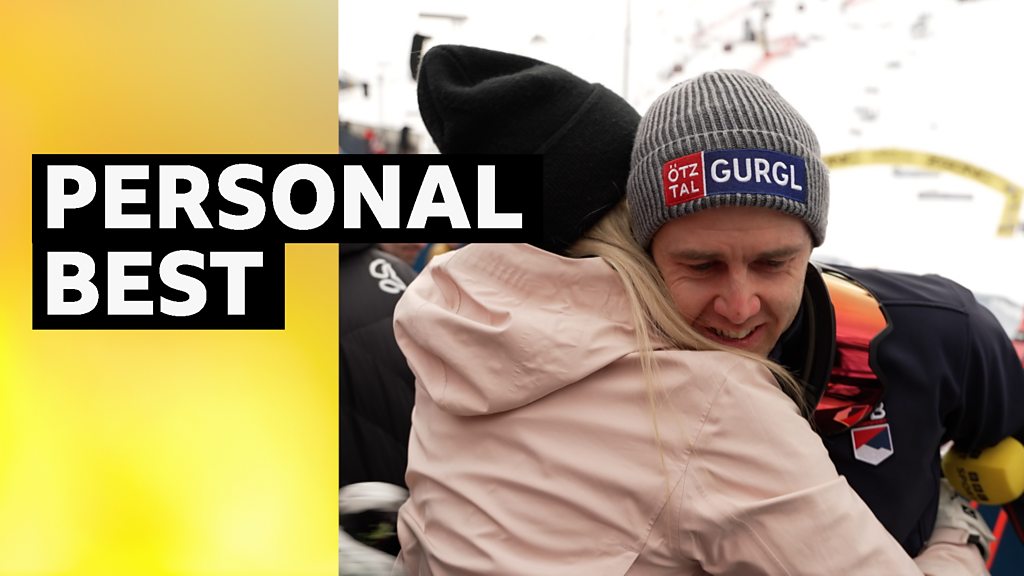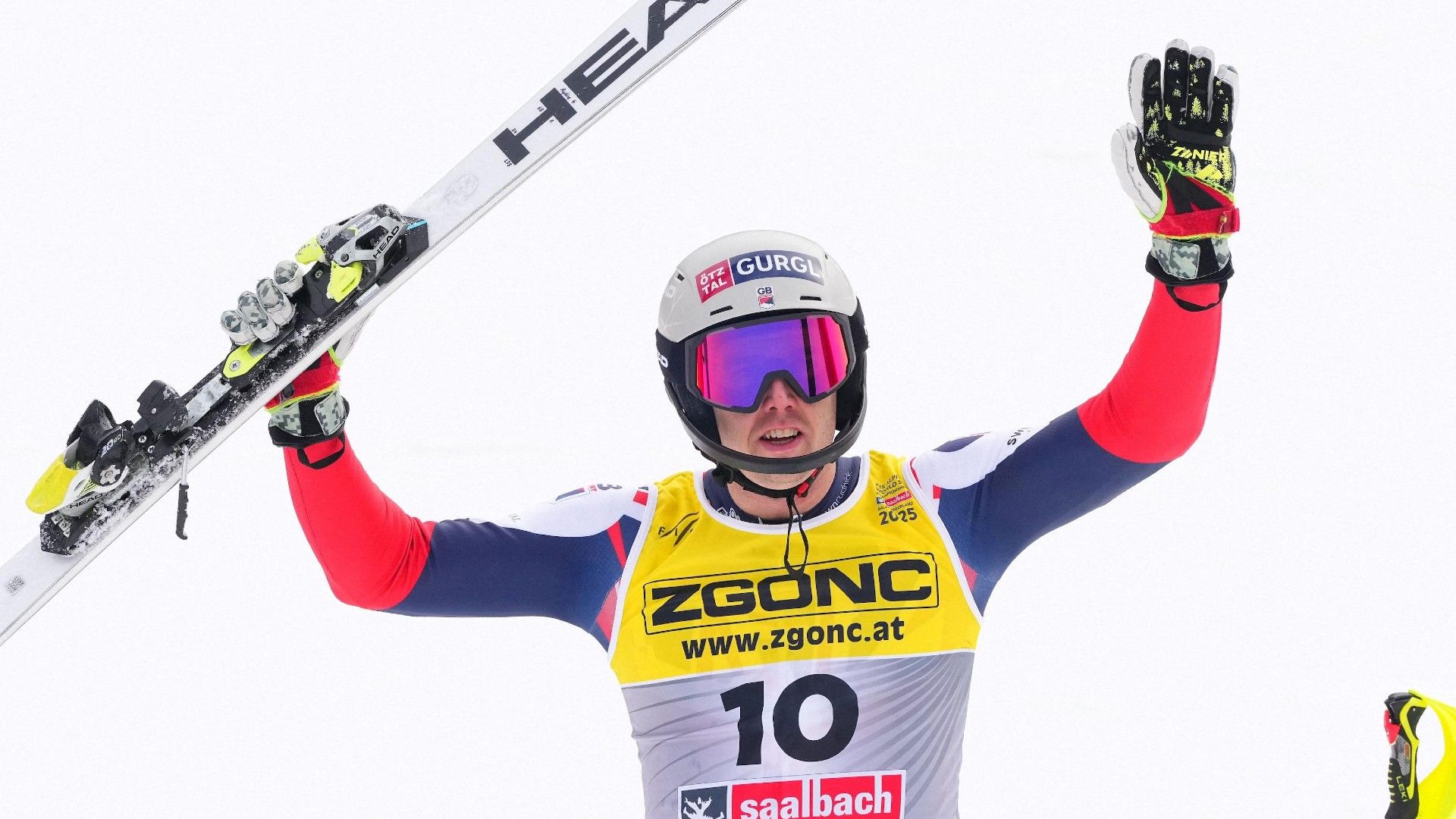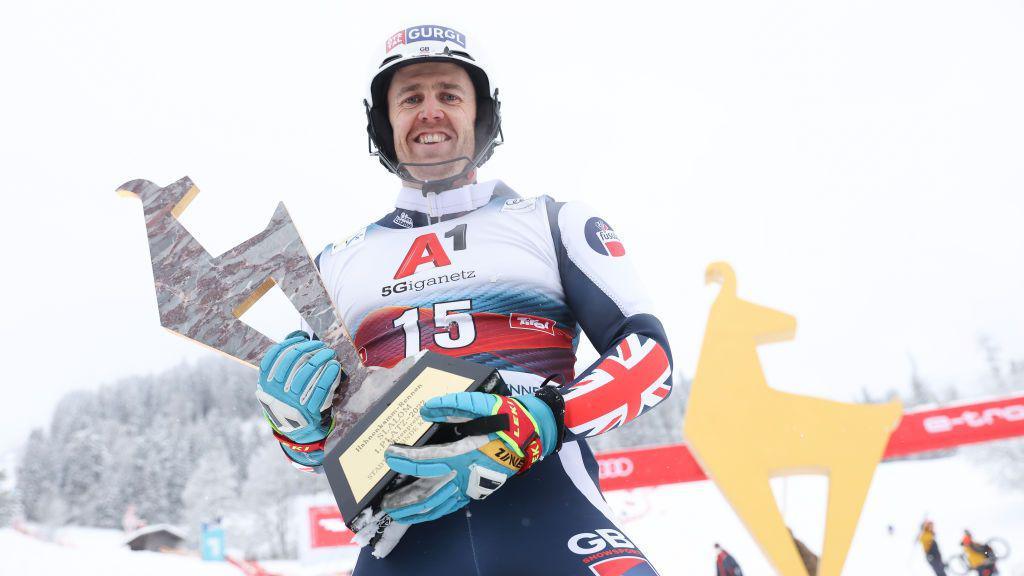Dave Ryding, Britain’s greatest alpine ski racer, has announced he will retire following the 2025-26 season, bringing an extraordinary career to a close at his fifth Winter Olympics. From a plastic slope in Lancashire to World Cup gold in Kitzbühel, Ryding’s story is one of defying the odds—and rewriting the playbook for British skiing.
A final Olympic chapter
At 38, Dave Ryding will draw the curtain on a remarkable career after the 2026 Winter Olympics in Milan-Cortina, marking his fifth Olympic appearance and a final opportunity to chase a medal that has eluded him.
“I’m committed to doing one more year all in and seeing what we can achieve,” Ryding said. “Everything feels right now to draw a line after the Olympics while my body’s good.” Remarkably injury-free in a sport notorious for its physical toll, Ryding believes this final season is one last chance to give his best while still performing at a world-class level.

It’s a decision that feels both practical and poetic: to bow out while still near the peak of his powers, and to give his young daughter, Nina, the chance to see her father compete on the Olympic stage. “I don’t want the legs to fall off,” he added. “It’s not fun if the legs fall off mid-season.”
From Pendle’s plastic slopes to World Cup history
What makes Ryding’s career so exceptional is where it all began—not in the Alps or Scandinavia, but on a dry ski slope in Pendle, Lancashire. His first experience with skiing came at the age of six, not on snow, but on synthetic brush matting. He didn’t train on snow until he was 13 and continued to race on dry slopes into his early twenties.
Unlike his European and North American counterparts, who are often raised on snowy mountains and backed by elite academies, Ryding carved his own way into the sport. He didn’t earn his first World Cup points until just before his 26th birthday—an age by which most skiers have already reached or passed their prime.
But once his breakthrough came, it was historic. In 2022, Ryding stunned the alpine world by winning the slalom in Kitzbühel, Austria—becoming the first British skier ever to win a World Cup gold. It was the culmination of years of grit, perseverance, and quiet self-belief. “I never stopped believing, never stopped trying,” Ryding said after his victory—words that perfectly capture his relentless drive and trademark northern grit.

A legacy built on more than medals
Though his Olympic best is a ninth-place finish at Pyeongchang in 2018, Ryding feels there’s unfinished business. “I think ninth is not a true reflection of my ability,” he admitted. His goal for Milan-Cortina is not just to participate, but to contend—and to leave nothing on the table.
With seven World Cup podiums under his belt, including silver in Kitzbühel in 2017 and bronze in Madonna di Campiglio in 2023, Ryding has firmly established himself as Britain’s alpine standard-bearer. But perhaps his most lasting contribution will be the path he’s carved for those coming behind him.
Training alongside British teammates Billy Major and Laurie Taylor in his final season, Ryding has become a mentor and motivator. “Hearing kids talk normally about World Cup podiums, it almost makes me laugh, because this is nuts,” he said. “The belief I’ve given to the next generation—I absolutely see it.”
Breaking the mold—and rebuilding it
Ski Sunday presenter and four-time Olympian Chemmy Alcott perhaps sums it up best: “Dave’s legacy in our sport supersedes his results. It’s more about the spark of belief that he has ignited in the next generation.”
In a sport often seen as elitist, dominated by wealth and geography, Ryding proved that greatness doesn’t have to follow a traditional path. He didn’t grow up on snow, he didn’t come from money, and he didn’t peak early. But he reached the pinnacle anyway—through hard work, resilience, and a fierce love for the sport.

“He fought a huge amount of adversity growing up,” said Alcott. “He dedicated his life to Pendle dry ski slope and that’s where he got the graft and the passion.” And while most elite skiers build their careers on thousands of hours of snow time from childhood, Ryding blazed a different trail entirely. “Historically in sport, we think that you’ve got to tick certain boxes along the way,” Alcott added. “Dave ticked the biggest box in our sport by winning in Kitzbühel—and he got there all of his own accord.”
A blueprint for the future
As Ryding prepares for one final season, the British ski racing community is already feeling the impact of his example. No longer is it unthinkable for a skier from the UK to compete—and win—on the world stage. His journey has redefined what’s possible for British athletes in a sport long dominated by alpine nations.
“It shows that our sport can be a lot more inclusive than people give it credit for,” said Alcott. “He made a new path.” When the Olympic flame burns in Milan-Cortina in February 2026, it will mark not just the end of Dave Ryding’s competitive career, but the beginning of a legacy. One not measured only by medals, but by mindset. Not just by his results, but by the revolution he sparked in British skiing.




